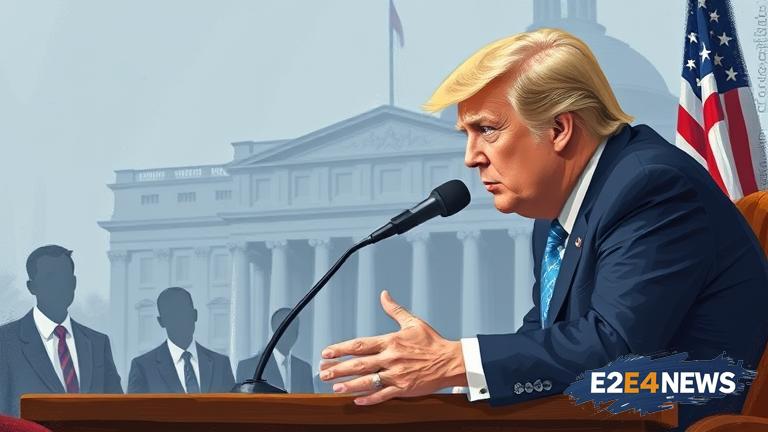The Trump administration’s recent move to halt and then release National Institutes of Health (NIH) research funding has sent shockwaves throughout the scientific community. The decision, which was announced on July 30, 2023, initially sparked widespread concern among researchers and scientists who rely on NIH funding to conduct critical medical research. However, in a surprising turn of events, the administration reversed its decision, releasing the funds and allowing research projects to continue. The NIH is the primary agency responsible for conducting and funding medical research in the US, and its funding is crucial for advancing our understanding of various diseases and developing new treatments. The initial decision to halt funding was met with widespread criticism from the scientific community, with many expressing concerns about the potential impact on ongoing research projects and the future of medical research in the US. Researchers and scientists rely heavily on NIH funding to conduct their work, and the uncertainty surrounding the funding had left many feeling anxious and uncertain about their future. The NIH provides funding for a wide range of research projects, including those focused on cancer, HIV/AIDS, and mental health. The agency’s funding is also critical for supporting early-career researchers and providing training and development opportunities for the next generation of scientists. The Trump administration’s decision to halt funding was seen as a major setback for the scientific community, and many were left wondering about the motivations behind the move. However, the subsequent release of funding has provided a sense of relief, albeit temporary, for researchers and scientists who can now continue their work. Despite the release of funding, concerns about the future of NIH research funding remain, and many are calling for greater stability and predictability in the funding process. The scientific community is urging the administration to provide a long-term plan for NIH funding, rather than relying on short-term fixes and stopgap measures. The uncertainty surrounding NIH funding has also raised concerns about the potential impact on the US’s global leadership in medical research. The US has long been a leader in medical research, and the NIH has played a critical role in advancing our understanding of various diseases and developing new treatments. However, the ongoing uncertainty surrounding funding has raised concerns about the potential for other countries to surpass the US in terms of medical research and innovation. The Trump administration’s decision to halt and then release NIH research funding has also sparked concerns about the potential politicization of science. Many are worried that the administration’s move is a sign of a larger trend towards politicizing science and undermining the integrity of the scientific process. The scientific community is calling for greater transparency and accountability in the funding process, and for the administration to prioritize the needs of researchers and scientists over political considerations. In conclusion, the Trump administration’s decision to halt and then release NIH research funding has highlighted the need for greater stability and predictability in the funding process. The scientific community is urging the administration to provide a long-term plan for NIH funding, and to prioritize the needs of researchers and scientists over political considerations. The future of medical research in the US depends on it, and the consequences of inaction could be severe. The US has a long history of investing in medical research, and the NIH has played a critical role in advancing our understanding of various diseases and developing new treatments. However, the ongoing uncertainty surrounding funding has raised concerns about the potential impact on the US’s global leadership in medical research. The scientific community is calling for greater investment in medical research, and for the administration to prioritize the needs of researchers and scientists. The release of NIH research funding is a welcome development, but it is only a temporary solution to a larger problem. The administration must provide a long-term plan for NIH funding, and prioritize the needs of researchers and scientists over political considerations. The future of medical research in the US depends on it, and the consequences of inaction could be severe. The Trump administration’s decision to halt and then release NIH research funding has sparked widespread concern and debate, and has highlighted the need for greater stability and predictability in the funding process. The scientific community is urging the administration to provide a long-term plan for NIH funding, and to prioritize the needs of researchers and scientists over political considerations. The US has a long history of investing in medical research, and the NIH has played a critical role in advancing our understanding of various diseases and developing new treatments. The release of NIH research funding is a welcome development, but it is only a temporary solution to a larger problem. The administration must provide a long-term plan for NIH funding, and prioritize the needs of researchers and scientists over political considerations. The future of medical research in the US depends on it, and the consequences of inaction could be severe. The scientific community is calling for greater transparency and accountability in the funding process, and for the administration to prioritize the needs of researchers and scientists over political considerations. The Trump administration’s decision to halt and then release NIH research funding has highlighted the need for greater stability and predictability in the funding process, and has sparked widespread concern and debate about the future of medical research in the US.
